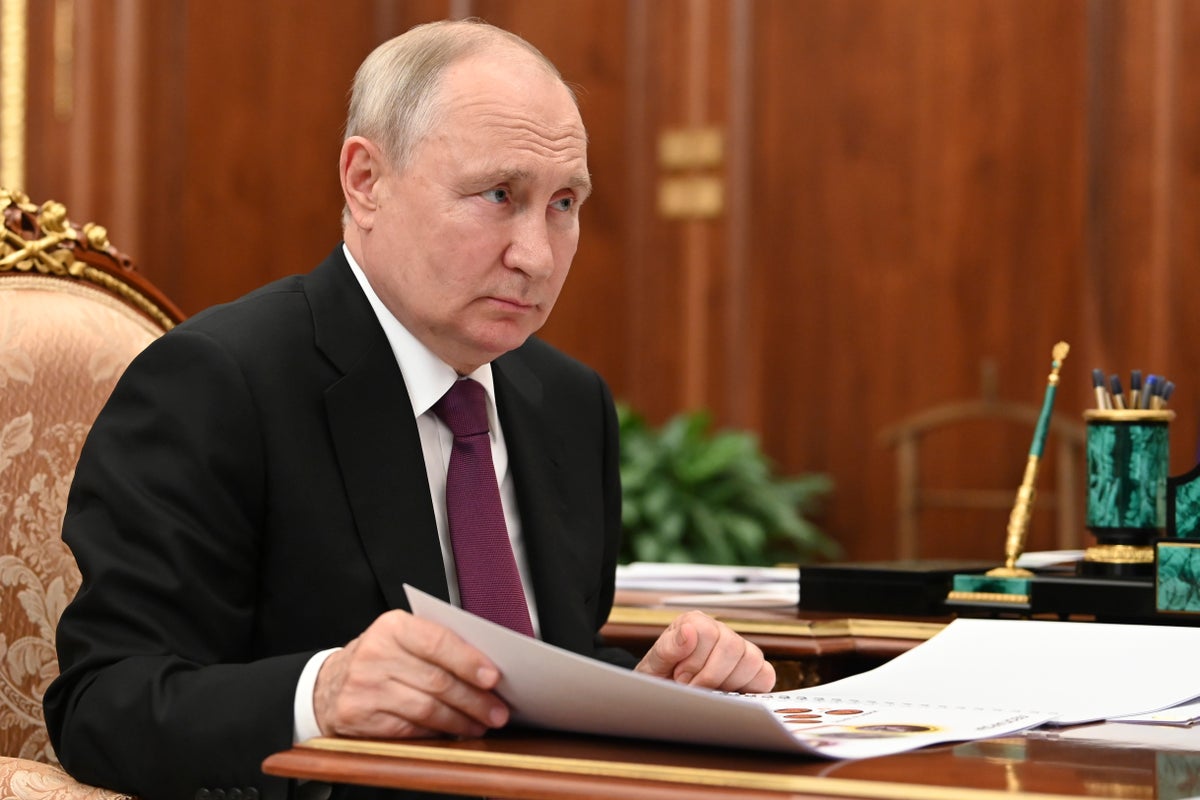
Members of the U.S. House Foreign Affairs Committee said Wednesday that Russian President Vladimir Putin is committing genocide in Ukraine. Their comments came a day before they were scheduled to meet with the chief prosecutor of the International Criminal Court.
The ICC in March issued an international arrest warrant for Putin for war crimes, accusing him of personal responsibility for the abductions of children from Ukraine. However, it has not yet charged him with any other offenses committed by Russian forces since their invasion of Ukraine more than 18 months ago.
The committee's chairman, Rep. Michael McCaul, a Texas Republican, told reporters during a visit to The Hague that Putin "tried to erase a culture, a people and a religion, and that is the definition of genocide.”
Another member of the committee, Anne Wagner, a Montana Republican, agreed, speaking of the "crimes against humanity, the downright genocide that this man has perpetrated.”
Gerry Connolly, a Virginia Democrat, said Putin even before the war had denied the existence of Ukraine as a country and a people.
“So I think he himself made the case for genocide and his behavior subsequently has filled in blanks,” Connolly said.
Their comments Wednesday came as Russian shelling of a market in eastern Ukraine killed at least 16 people and wounded many more. The attack was launched while U.S. Secretary of State Antony Blinken visited Kyiv and was expected to announce more than $1 billion in new American funding.
Members of the committee will meet Thursday with ICC Prosecutor Karim Khan and visit the European Union Agency for Criminal Justice Cooperation, or Eurojust, which hosts the International Center for the Prosecution of the Crime of Aggression Against Ukraine. The center aims to support nations already building cases against senior Russian leaders for the crime of aggression. The International Criminal Court can prosecute crimes including genocide but does not have jurisdiction over the crime of aggression.
McCaul said the committee members will be looking at “the evidence itself and how we can help The Hague gather more and collect more evidence and intelligence to prove the case against Putin.”
The United States is not a member state of the ICC, and during the administration of former President Donald Trump it slapped sanctions on a previous ICC prosecutor and several aides for pursuing investigations into alleged war crimes committed by U.S. troops in Afghanistan and Iraq and Israeli servicemembers in the West Bank and Gaza.
But since the outbreak of war in Ukraine, the relationship has shifted. Last month, Attorney General Merrick Garland said the U.S. Justice Department is cooperating with the court and supporting Ukrainian prosecutors carrying out war crime investigation s.
While the arrest warrant against Putin carries significant moral weight, it is unlikely to lead to him appearing in a courtroom in The Hague any time soon because Moscow does not recognize the court’s jurisdiction or extradite its nationals.
The visiting congressional delegation also includes Gregory Meeks, D-N.Y.; Madeleine Dean, D-Pa.; Thomas Kean, R-N.J.; and Bill Huizenga, R-Mich. They are also holding meetings in the Netherlands with Dutch government officials and members of parliament, among others.
The delegation’s Europe visit aims to bolster ties with U.S. strategic allies as well as discuss support for NATO and Ukraine, ways to hold Russia accountable for its actions in Ukraine, and how to confront shared threats from China.







